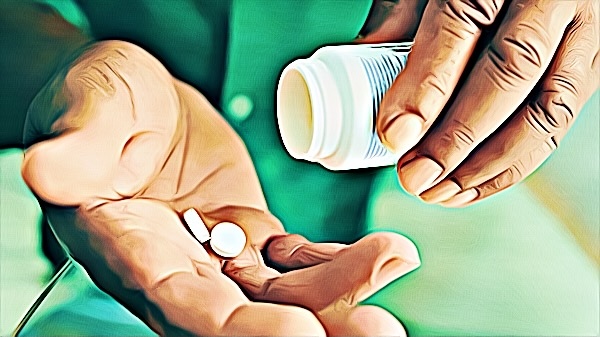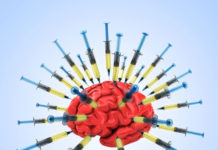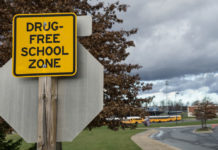For illnesses that don’t require a doctor’s prescription, most of us buy Over the counter (OTC) medication to get better. It can solve various minor illnesses from muscle pain to sore throat, nothing too dangerous to demand a doctor’s professional diagnosis. However, some of these drugs contain active ingredients that can be abused for recreational use.
The Consumer Healthcare Products Association notes that over 750,000 retail outlets in the US sell OTC drugs. These range from your standard convenience stores to more healthcare-centric pharmacies. Inside these stores are different kinds of OTC drugs that are widely available, legal, and have no age requirement for purchasing any set amount. This is why some people take advantage of these lax rules to get their fix. They do this by using OTC medicine as a gateway drug to heavier substances or mixing it with their dosage for their pre-existing drug abuse disorder.
The state of OTC drug abuse in America
Unlike other forms of drug statistics concerning heroin or meth, there’s not enough national data to cover the full scope of OTC drug abuse. The most common statistic present is from the Substance Abuse Mental Health Services Administration (SAMHSA) that notes over 3.1 million people are using cold and cough medicine to feel high. This dangerously covers the ages 12 to 25, ranging from adolescents to young adults. Since there’s not enough data on other OTC medicine and proper tracking of suspicious drug buying behavior, these figures can be much smaller than the actual number.

The common OTC drugs abused nationwide
Using any OTC medicine outside its medically prescribed dosage is already considered a form of drug abuse. This is because the adjusted dosages can lead to other medical complications besides the feeling of getting high. In this section, we’ll cover four common OTC medicines abused in the US and how they can negatively affect your body.
1. Pain relievers
Pain medication like Tylenol and other variants contain Acetaminophen, which effectively treats different forms of minor pain like headaches, toothaches, flu pain, and even menstrual cramps. People can abuse their OTC medication to go beyond managing their chronic pain to experience a prolonged feeling of numbness. However, chronic pain can lead to a wide range of side effects.
Common side effects of pain reliever abuse: Nausea, stomach cramps, swelling in upper abdomen, diarrhea, sweating, confusion, and liver damage.
2. Cough and cold medicine
OTC medicine like Nyquil contains dextromethorphan (DXM) which is effective in treating coughs and cold. However, in high doses, it can cause a sense of numbing and hallucinatory effects. Abusing DXM is known as “robo-tripping” or “dexing”. Since some cold medicines also contain pseudoephedrine, it has stimulant effects that are similar to methamphetamines. In fact, illegal drug manufacturers can use it as a base to chemically manufacture crystal meth. The unfortunate side effect of DXM can lead to a wide range of side effects that range from physical responses to neurological complications.
Common side effects of cough and cold medicine abuse: nausea, vomiting, lethargy, racing heartbeats, sweating, skin rashes, increased blood pressure, rapid eye movement, slurred speech, euphoria, paranoia, disorientation, coordination issues, panic attacks, seizures, hot flashes, hyperactivity, and hallucinations.
3. Anti-diarrhea medicine
Having stomach problems can happen to anyone, especially if they eat spoiled food. This can lead to diarrhea which can be solved by a range of anti-diarrhea medicine that contains Loperamide. Loperamide produces a high when ingested in large doses and is commonly abused by people for self-medicating purposes for opioid withdrawal symptoms. Common side effects of Loperamide involve complications affecting your heartbeat. For people with weak hearts and cardiac systems, the side effects can lead to strokes or even death.
Common side effects of anti-diarrhea medicine abuse: arrhythmia(irregular heartbeat), cardiac arrest, and loss of consciousness.
4. Motion sickness medicine
Some people are uncomfortable riding moving vehicles, which requires them to bring a batch of motion sickness pills during a trip. These OTC drugs contain dimenhydrinate, a compound that primarily treats sensory conditions like motion sickness or vertigo. People can abuse this ORC drug due to its potentially euphoric high and psychedelic effects in high dosages. Its other symptoms should not be taken lightly since they can cause death.
Common side effects of motion sickness medicine abuse: nausea, ringing in the airs, arrhythmia, hallucinations, seizures, coma, and death.
The side effects of OTC drug abuse
As its name implies, OTC drug abuse stems from overuse of over-the-counter medicine against the intended directions of the drug. Although they’re relatively harmless when following the appropriate dosage, it’s possible to get high when used inappropriately.
A person abusing OTC drugs can be prone to mood swings, memory lapses, and changes in appetite and sleeping patterns. These side effects are also symptomatic of other forms of drug abuse. For this reason, a person may be using heavier drugs once tolerance to OTC drugs can no longer sustain their drug dependence.
The dangers of OTC drug overdose
Although OTC medicine can lead to serious physical health problems, these effects will vary depending on the drug abused. As mentioned above, a person suffering from OTC drug abuse disorder will display different symptoms while regularly using the drug.
In extreme cases, a person can overdose from OTC drugs by mixing them with other prescription medication, alcohol, or illegal drugs. It can lead to various neurological complications that can start with headaches, nausea, confusion and lead to full-on hallucinations. A person may also be impaired with their motor skills, develop sweating or chills, and sudden seizures.
Keep in mind that some of these drugs are strong enough to cause a person to overdose, even without mixing them with other drugs. This is why OTC drug addiction is a serious matter that people shouldn’t take lightly.
Over time, the effects of drug abuse disorder will typically lead to severe long-term medical conditions like memory loss, heart problems, kidney damage, and even internal stomach bleeding. A person will also be at risk of cardiovascular conditions like an increased risk of stroke due to high blood pressure. In worst-case scenarios, it can even cause deaths.
The withdrawal symptoms of OTC drug abuse
Like anyone with drug abuse disorder, people who abuse their OTC medication will experience withdrawal symptoms after halting their regular intake. Some common withdrawal symptoms include neurological complications like drug cravings, anxiety, depression, erratic mood swings, and a constant feeling of fatigue.

Remember that different OTC medications will lead to other manifestations of withdrawal, depending on the drug. People may also experience more complex medical conditions if they use it with other drugs like opioids, benzodiazepines, or methamphetamines.
Conclusion
The danger with OTC drug abuse is that it’s closely related to abusing prescription medication. For starters, people can start using these medicines for their illness but develop a dependence on them over time. Some scenarios also point to peer pressure or experimentation in using these accessible drugs for recreational use. Although the numbers aren’t as high, it’s still a risk to people’s health, leading to severe consequences.
Instead of downplaying the effects of OTC medicine, it’s vital to treat them with a similar level of urgency with other forms of drug addiction. People experiencing drug abuse disorder must seek drug rehab facilities that can adequately respond to their needs for recovery.
Sources:
















